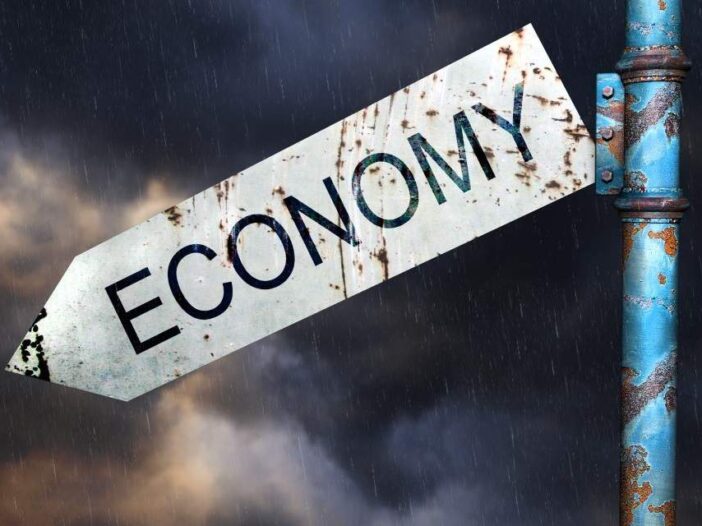Dear Reader,
Governments are doing a rather good job of keeping the economy together. At least by the measures which politicians pay attention to.
House prices, unemployment, GDP, house prices, and house prices, for example.
In fact, house prices are doing rather well. ‘Even in the midst of a recession the Australian housing market continues along its merry way’ writes the Guardian.
Bankruptcies are plunging too. TV presenter and finance personality Kochie highlighted the data:
‘Data from the Australian Financial Security Authority (AFSA) shows that the total number of personal insolvencies hit 24½-year lows of 4,239 in June… down 35.1 per cent from a year ago and the sharpest annual contraction since records began in the September quarter 1987.’
Foreclosures and rent evictions are down too, thanks to government bans. And GDP is set to boom once the lockdowns end, if only because of the low base.
If only we had pandemics more often.
But all this begs a simple question: Why didn’t they do it all in 2008? Why didn’t governments guarantee jobs, suspend foreclosures and evictions, pay people their wages to stay home and cut taxes back then?
I mean, if the 2008 subprime crisis was created by dodgy bankers in the long list of ways it was, why not freeze foreclosures then too, for example?
Back in 2008, we must’ve believed there would be some sort of cost to those sorts of policies. Some sort of reckoning which prevented today’s policies from being a good idea.
So, what happened to that reckoning this time around? Do the old consequences no longer apply? Has the world changed somehow?
Part of the argument is that governments are imposing COVID-19 chaos on the economy with their lockdowns. So it’s only fair that the government rescues the economy too.
It’s compensation for their draconian policies. You just better hope you’re in one of the politically important industries that gets bailed out…
But that doesn’t change the equation. You can’t freeze an economy and expect no consequences. You can’t bail everyone out and expect no costs.
So, let’s remind ourselves what the price of our economic rescue is. Because it’ll have implications for…well, decades at least.
[conversion type=”in_post”]
The obvious one is debt. Government debt, corporate debt, household debt and every other sort of debt is booming. Unpaid mortgages are accumulating, companies are borrowing just to keep operations running and some governments are bursting through debt-to-GDP levels not seen in peacetime…or wartime.
Remember what debt is. People are borrowing from the future to deal with a crisis in the present.
Which is problematic for growth in the future because it isn’t productive debt that’s being invested in something which will generate a return. We’re talking debt to paper over problems.
That may well be a good idea. Letting the economy crash may make existing debt even harder to repay, let alone all the other consequences. But don’t assume this doesn’t create challenges to growth in the future. Debt that isn’t invested in productive enterprise is simple theft from future GDP.
Sometimes, default is a better idea than mortgaging away your future.
And a lot of that additional debt will still be defaulted on anyway. Government agencies are discovering that the companies and people they lent money to are surprisingly hard to even contact…
Banks are discovering those they gave forbearance to haven’t changed their ability to begin repaying their debt. Governments are openly acknowledging their reliance on the printing press to keep financially stable.
At some point, the reckoning will hit in the form of defaults. The only thing politicians can do is make the problem worse by delaying the reckoning and thus accumulating the build-up in defaults. Better it’s some other politician’s problem, I suppose.
A less well-understood problem which COVID rescues are accumulating is productivity decline. That’s the other half of GDP growth — you can’t rely on immigration like you used to…
If people and companies rely on government programs to survive, they don’t change like they would in a crisis. This badly undermines future growth in ways very few economists understand.
If you think of a recession as a time when resources are reallocated to better uses, instead of as a lack of economic activity, the problem becomes obvious. Some companies that were well suited to a pre-COVID world are no longer viable. Some new companies that are ideally suited to the post-COVID world should now be booming.
But the government is preventing this transition for fear of the economic data it involves publishing in the meantime. People would be unemployed as the transition takes place. And that’s not politically feasible, even if it is economically advisable.
The lack of adjustment has consequences. Even the Productivity Commission has figured this one out, warning that government programs are leading to longer-term stasis in the economy. Just when rapid amounts of change should be happening — the change that leads to economic growth in the future — the government has frozen the economy and prevented that change.
The exodus from cities should be generating huge amounts of jobs outside cities, not just destroying jobs inside cities. But we’re stuck with cities in lockdown and no real boom outside of cities, except in house prices.
A third effect of the COVID-19 rescues is one nobody wants to worry about yet. Consider what’ll happen in the next recession, a few years from now. Having established the precedent that everyone gets rescued, what will governments do? Do you really think that politicians will be able to intervene less next time?
The electorate now knows the power of government to save them is extraordinary. It probably feels unlimited to most people. And they will demand the same next time. Which means our other COVID-19 rescue problems will be compounded, growing over time.
If we can pull off our current economic policies, a lot of other government programs suddenly look rather politically viable too. We’ve opened the floodgates to vast spending.
The only way governments are managing is by printing money. QE is now openly financing deficits. Central bankers no longer deny this. They simply argue that it’s required practice under their other mandates. If they didn’t save governments, there would be a plunge in inflation, for example. And inflation is their thing.
But that doesn’t change the taboo which has been broken. Financing deficits with money printing leads to inflation over time. In the past, we had either quantitative easing or government deficits, but not both at the same time. This time we do. So, this time, inflation might finally rear its ugly head.
If it does, an investment trend about 40 years in the making will reverse. Interest rates will begin to rise. And nobody around remembers how to deal with that.
It’s time to do some research…
Until next time,
 |
Nickolai Hubble,
Editor, The Daily Reckoning Australia Weekend
PS: Discover why this gold expert is predicting a HUGE spike in Aussie gold stock prices. Download your free report now.

